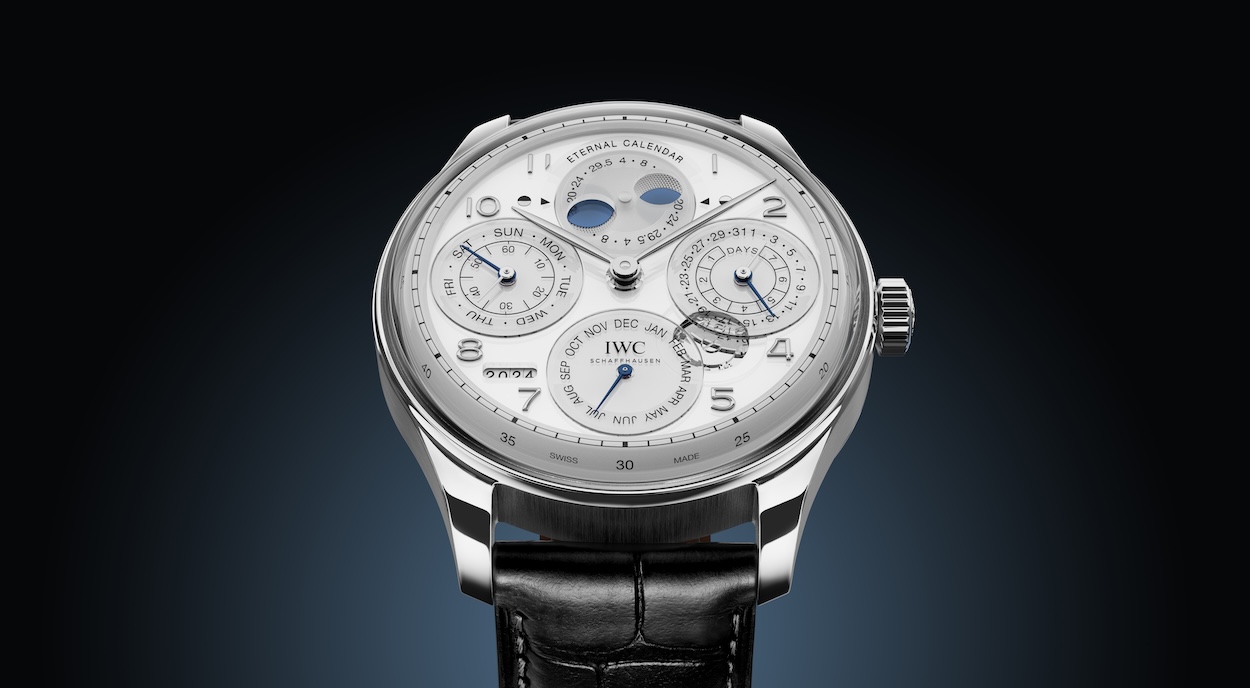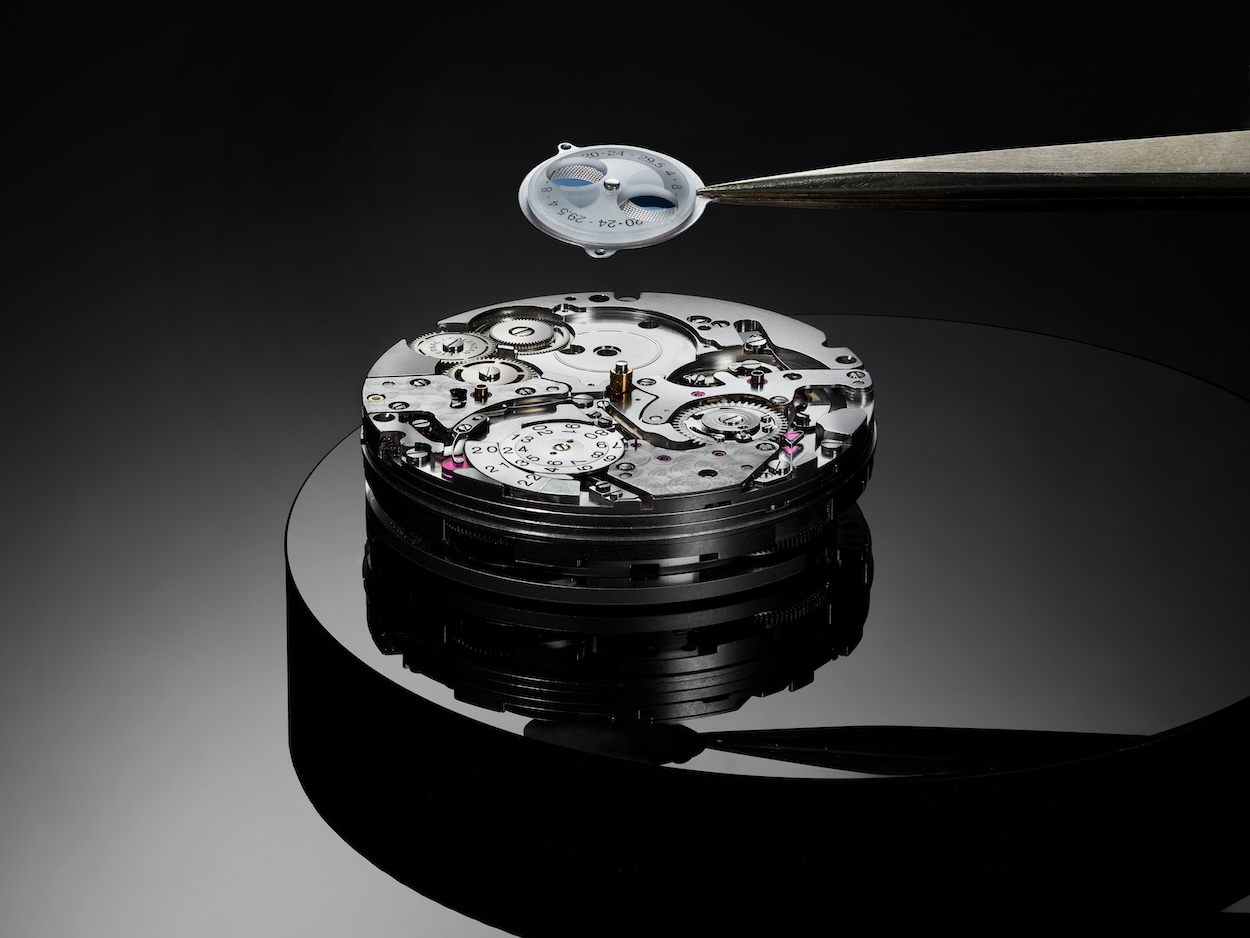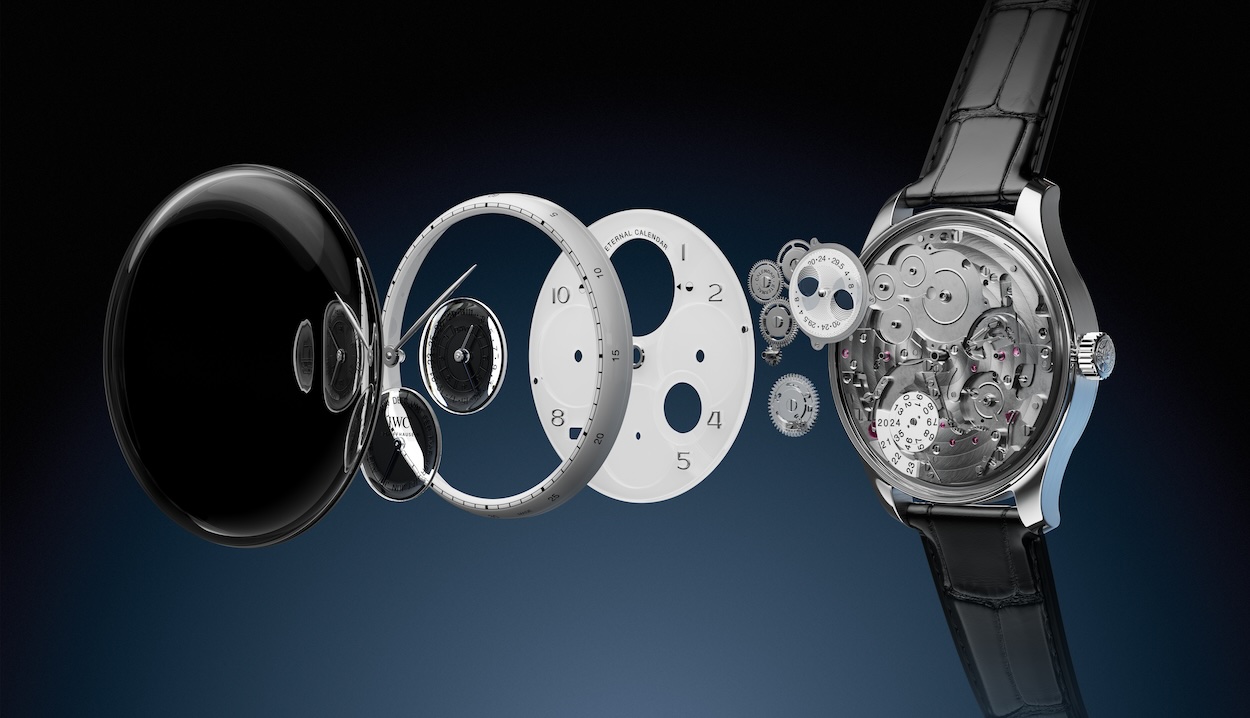Referred to as “the Oscars of the Swiss watch world,” the Grand Prix d’Horlogerie de Genève has honored extraordinary advancements in horology since 2001. This year, IWC Schaffhausen’s Portugieser Eternal Calendar—the first watch of its kind from the prestigious brand—took home the top prize, known as the “Aiguille d’Or.” This particular model, which is a secular perpetual calendar, accounts for regular leap years though skips secular ones (years that end in two zeros). If it remains wound, it maintains accuracy until the year 3999 without needing to be updated.
IWC coupled this rare feature, known in the watch world as a complication, with a proprietary Double Moon phase display, which will precisely indicate the moon’s position in the night sky for a staggering 45,361,055 years. “We have pushed the limits for mechanical calendar complications once again,” Chris Grainger-Herr, the CEO of IWC Schaffhausen, shared in a statement. “Despite its tremendous complexity, the Portugieser Eternal Calendar is a watch we are actually producing, and our customers are wearing every day.”
Other honors went to De Bethune’s reversible DB Kind of Grande Complication, which was granted the men’s complication watch prize; Van Cleef & Arpels’ Lady Arpels Brise d’Été automaton won the award for ladies’ complication. Daniel Roth took home the Tourbillon Watch Prize for the Tourbillon Souscription, a nod to one of their pioneering designs from 1988. And, independent designer Stefan Kudoke’s Kudoke 3 received the “Petite Aiguille” acknowledgement. Powerhouse maisons like Chopard and Piaget were also recognized alongside independent brands including Laurent Ferrier, Massena Lab, Ming, H. Moser & Cie, and Berneron.



